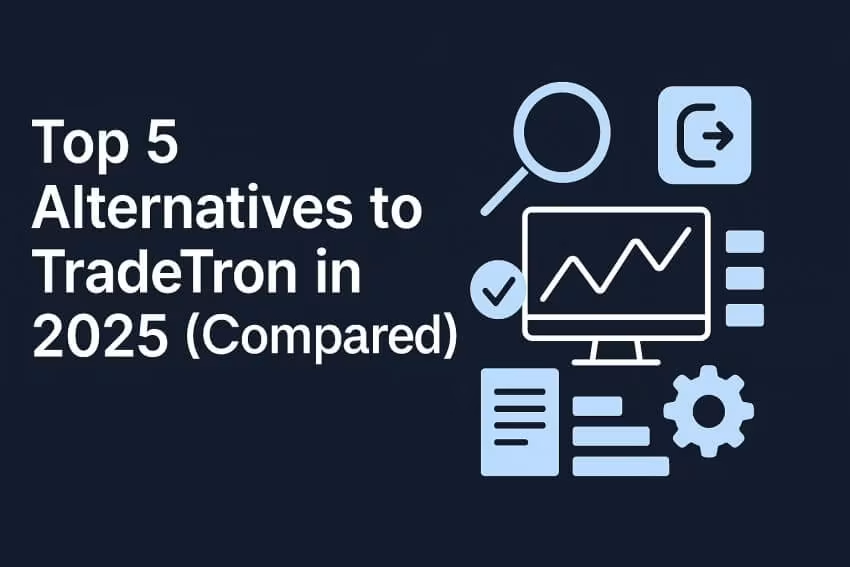In recent years, algo trading in India has become an essential part of the country’s financial landscape. With technology getting more advanced and markets becoming more complex, traders as well as institutions are switching to algorithmic trading to make their trading strategies better. Algorithmic trading, or algo trading, is a method that utilises automated programs to carry out trades based on certain rules such as price, volume, and timing. The soaring adoption of algo trading in the Indian stock markets has immensely strengthened liquidity, thus forming a more efficient and stable market atmosphere. Through this blog, we will find out the ways that algo trading is increasing liquidity in the financial markets, especially in India and also will see how it is a key component in the modern market operation.
Rise of Algo Trading in India
Algo trading in India has been a huge success in the last decade. It was once only used by the big fish such as hedge funds and financial institutions, but has now become more accessible to individual traders and investors. This is mainly because of the technology which is genuinely solving the problem and the regulatory policies, which have been making algo trading platforms more user-friendly and cheaper.
Algo trading is the new cool with the birth of online trading platforms and the regulatory support from the Securities and Exchange Board India (SEBI). SEBI is well aware of the fact that algorithmic trading is very important in creating an efficient market structure and therefore, it has come out with the necessary frameworks to regulate and promote its use.
Liquidity and Its Importance in Financial Markets
Liquidity refers to the ability to buy or sell assets in the market without significantly affecting the asset's price. High liquidity in financial markets is crucial for smooth trading as it reduces transaction costs, minimises price volatility, and enhances overall market stability. In illiquid markets, it becomes difficult for traders to execute trades efficiently, leading to wider spreads and increased price fluctuations.
One of the main benefits of algo trading is its positive impact on market liquidity. Algo trading in India has led to an increase in the number of trades executed within a shorter time frame, ensuring that there is always a buyer or seller in the market. This creates a more dynamic and fluid trading environment.
How Algo Trading Enhances Liquidity
Algo trading enhances liquidity in several ways
First, it allows for the continuous execution of trades, which keeps the market active. Here, the main focus is on the case when the market is experiencing low trading activity and traditional traders may be reluctant to enter. Algorithms for algo trading are programmed to exploit minor price differences which are sufficient to maintain liquidity even in stagnant markets.
Next, algorithmic trading aids in the reduction of the bid-ask spread. In fact, the spread is the difference between the price that buyers are willing to pay for an asset and the price that sellers are asking for. A tighter spread usually means that the market is more liquid. Since algorithms can perform several transactions very fast and accurately, they are one of the factors that play a key role in the narrowing of the bid-ask spread, which in turn, facilitates traders entering and exiting the market.
Finally, algo trading facilitates market-making, a process in which traders provide liquidity by continuously quoting buy and sell prices for securities. Market-making algorithms are specifically designed to place orders on both sides of the market, ensuring that there are always enough bids and offers to keep the market moving. This constant presence of market-makers enhances liquidity and makes trading more efficient.
Role of Institutional Algo Traders in Indian Stock Markets
Institutional investors have always been the secret ingredients of boosting liquidity in the Indian stock market through algo trading. These institutions, which are predominantly informed by a vast quantitative team, such as large banks, mutual funds, and hedge funds, usually apply advanced algorithms to execute substantial orders without heavily disturbing the market. Often and primarily, these institutions employ algorithms to disassemble large orders into several, more manageable trades. This avoids the high price slippage and keeps the liquidity going.
Moreover, institutional algo traders in India are also likely to participate in high-frequency trading (HFT) which is a type of algo trading that consists of sending a large number of orders at very high speeds besides that. HFT challenges the market liquidity with its promises that orders get placed and finished in just a few seconds thereby, a constant flow of trades within the trading day is sustained.
Impact on Retail Investors
Algo for institutional trading of course mastered executions but as time goes by, even retail investors are beginning to reap the positive effects of the increased liquidity resulting from these systems. This phenomenon of algo trading online has now become even more available for retail crypto investors facilitating them to take part in the same liquidity-enhancing mechanisms used by large institutions.
Some platforms such as uTrade Algos enable retail traders to implement strategy algorithms thereby making trading operations easier, and coming to the market in an efficient way. From these platforms, retail investors can have peace of mind to trade crypto knowing that there is enough liquid money to execute their orders quickly and at the desired prices.
Mitigating Volatility Through Algo Trading
Volatility can often disrupt market liquidity, causing large price swings and making it difficult to execute trades efficiently. However, algo trading can mitigate these effects by ensuring that there is a constant flow of trades, even in volatile market conditions. Algorithms are designed to adjust their strategies in real-time based on market conditions, which helps stabilise prices and reduces the impact of sudden price movements.
For example, during periods of extreme market volatility, algorithms can place limited orders to buy or sell assets at specific prices. This creates a buffer that absorbs large sell-offs or buy-ins, thereby preventing excessive price fluctuations and maintaining liquidity.
Future of Algo Trading and Liquidity in India
As the adoption of algo trading in India continues to grow, its impact on market liquidity will only become more pronounced. With the introduction of more advanced algorithms and platforms like the uTrade Algos platform, both institutional and retail investors will benefit from increased market efficiency and liquidity.
Moreover, further utilisation of machine learning (ML) and artificial intelligence (AI) in algorithmic trading is what we should expect to be coming along with technological advancement. Those improvements will give algo trading platforms an edge to become still smarter, thus getting a better liquidity position through good trade execution, risk management, and discovery of prices.
In summary, algo trading plays a crucial role in enhancing market liquidity. By executing trades efficiently, reducing the bid-ask spread, and facilitating market-making activities, algorithmic trading has made markets more accessible and efficient for both institutional and retail investors. With platforms like the uTrade Algos platform offering advanced trading solutions, algo trading in India will continue to drive liquidity and contribute to the overall stability and growth of the financial markets.












